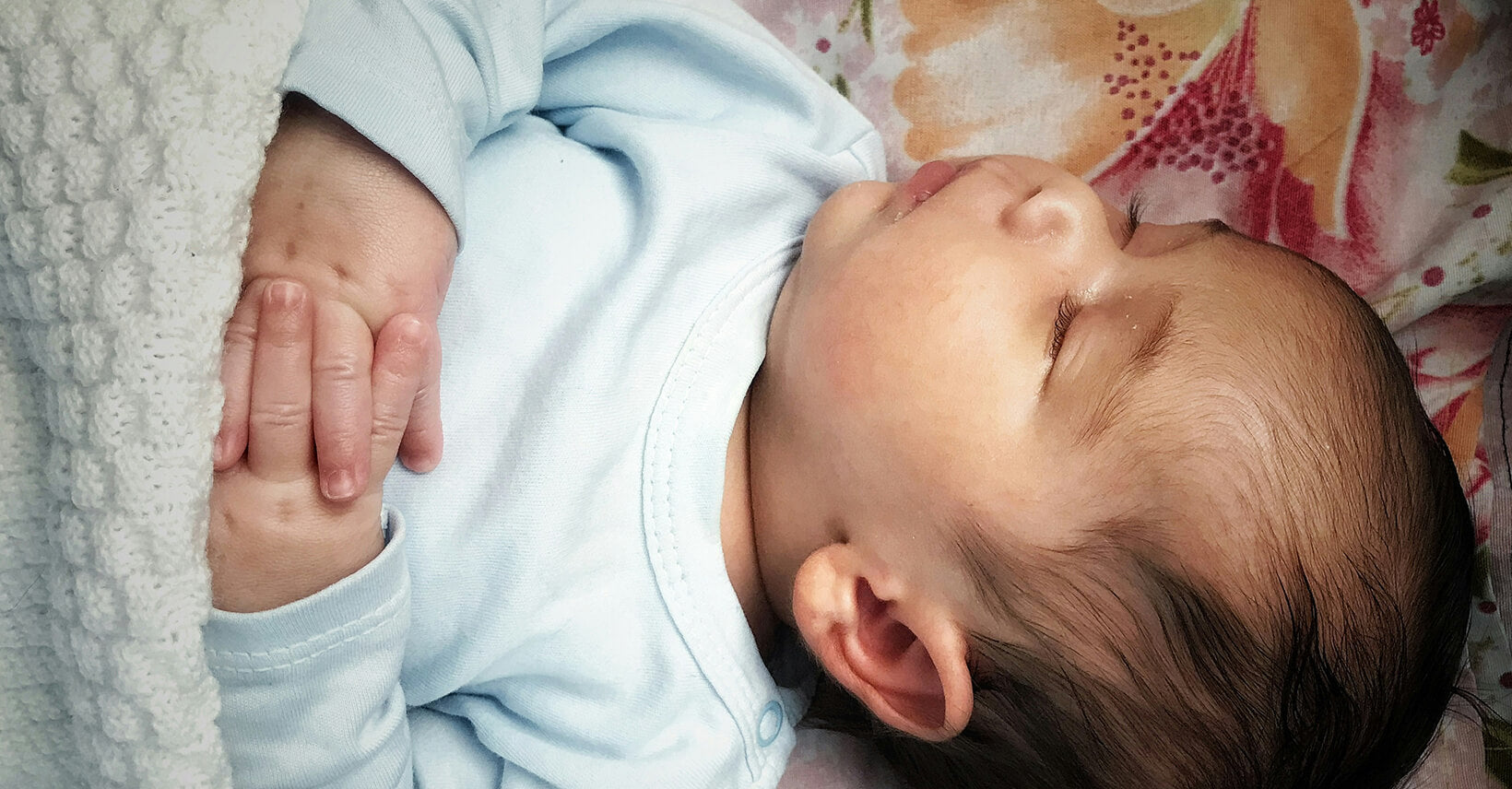
Surviving the 10-Month Baby Sleep Regression
The sweet nighttime snuggles with baby are gone. At around 10 months, babies enter a new sleep phase that's unfamiliar and tiring for many parents. Fussy nights, trouble falling asleep, and frequent wakings become the norm in what's called the "10-month sleep regression." This article written by Kaiya Baby breaks down what's behind this rocky sleep period, its symptoms, and effective coping tips to help you and baby get your rest back. Key things to know:
What is the 10-month sleep regression?
What are the signs of 10-Month sleep regression?
What causes 10-month sleep regression?
How long does the 10-month sleep regression last?
How to handle 10-Month sleep regression?
What is the 10-month sleep regression?
The 10-month sleep regression refers to a period of disrupted sleep patterns that commonly occurs when babies are around 10 months old.
This sleep disruption is considered a "regression" because babies who were previously sleeping well through the night may suddenly begin waking frequently.
What are the signs of 10-Month sleep regression?
- Waking up a lot at night- After previously sleeping through the night, baby starts waking up frequently, often every 1-2 hours.
- Hard time falling asleep- Bedtime becomes a struggle. Baby fights sleep and it takes longer for them to fall asleep.
- Early morning wakes- Whereas baby used to sleep until 7 am, now he's up at 5 am raring to go.Need more daytime sleep - Naps that were getting shorter are now longer again or added back in.
- Sleep crankies- Disrupted sleep leads to one cranky baby! More fussiness, crying, tantrums, and grumpiness from the overtired kiddo.
What causes 10-month sleep regression?
- Growing mind- Around 10 months, babies get a huge mental boost. They're more aware of their surroundings and mama not being there, which disrupts sleep.
- Mature sleep cycles- Baby's sleep cycles start transitioning to more adult-like patterns. This transition can mess with their sleep for a bit.
- Separation anxiety- Around 10 months, babies often get really clingy. They don't like being apart from parents, which makes falling asleep alone tougher.
- Sleep needs shift -Growing babies don't need as much nighttime sleep. But their naps are decreasing too, leaving them overtired.
- Teething- Getting new chompers can also cause extra wakings at this age.
-
Skills explosion- Mastering new skills like pulling up, crawling, cruising can overstimulate baby's developing brain and interrupt sleep.

How long does the 10-month sleep regression last?
The 10-month sleep regression typically lasts 4-6 weeks.
Of all the sleep regressions babies go through, the 10-month regression tends to be the longest. It's not unusual for the sleep disruptions to persist for a full month or longer.
Most other regressions, like the 4-month or 18-month, resolve in 2-3 weeks. But the 10-month regression is a bit more drawn out.
The key is to be patient and consistent. This too shall pass! Within 4-6 weeks, baby should resettle into more consistent sleep patterns again.
If the sleep disruptions continue past 6 weeks or are very severe, consult your pediatrician to rule out any underlying medical issues.
But in most cases, the 10-month regression runs its course in about a month or so. Offering comfort and sticking to routines will help baby through this challenging developmental period!
How to handle 10-Month sleep regression?
Stick to a regular daily routine:Have consistent wake up, nap, and bedtimes. This helps baby establish healthy sleep habits.
Create a quiet, peaceful bedroom:Make sure the room is dark, cool, and calm before bed to help baby wind down.
Use comforting objects:Give baby a soothing lovey, blanket, or pacifier when they wake up for comfort.
Don't rush to respond:When baby stirs at night, wait a bit to see if they can resettle themselves. Sometimes they wake briefly then go back to sleep.
Offer gentle soothing:If baby keeps fussing, try rocking, patting, or cuddling to help them calm down.
Rule out health issues:Make sure the sleep disruptions aren't due to something like a cold, ear infection, or teething pain. See the doctor if concerned.
Limit daytime sleep:Overtiredness from too much daytime sleep can disrupt nighttime rest. Cap naps as needed.
Share night duty:Take turns with your partner tending to baby at night so you can both get some sleep.
Conclusion
The 10-month sleep regression is challenging, but remembering its cause can help families push through it. This rocky period is a sign your baby is making big developmental strides, both mentally and physically. Even though the frequent wakings and sleep struggles are exhausting, try to appreciate it as a temporary disruption resulting from your thriving baby's growth.
Staying patient, consistent, and empathetic during this regression will help your baby resettle into improved sleep patterns once this growth spurt passes. Stick to your normal naptime and bedtime routines. Provide comfort when needed but avoid overstimulating playtime. Be flexible and attend to any needs promptly.
Most importantly, take care of yourself during this demanding period. Nap when baby naps. Trade off night duty with your partner. Accept help from family and friends. Focus on healthy meals and stress management.
The 10-month regression won't last forever. With teamwork and understanding, your household will be sleeping soundly again soon. This too shall pass! If you have any other concerns, your pediatrician can provide guidance tailored to your baby's needs.

Yujia Shi
An expert in sleep sack design, is a valued contributor to Kaiya Baby's blog. With a strong background in baby sleep bags and maternal care, she is highly regarded for her professionalism. Yujia Shi prioritizes baby comfort and safety in her designs, using high-quality materials. Her insightful articles on sleep bags have been featured in reputable publications and have gained a significant readership. Trust Yujia Shi to help you create a comfortable and safe sleep environment for your baby, backed by her proven track record in the industry.



Leave a comment
This site is protected by reCAPTCHA and the Google Privacy Policy and Terms of Service apply.